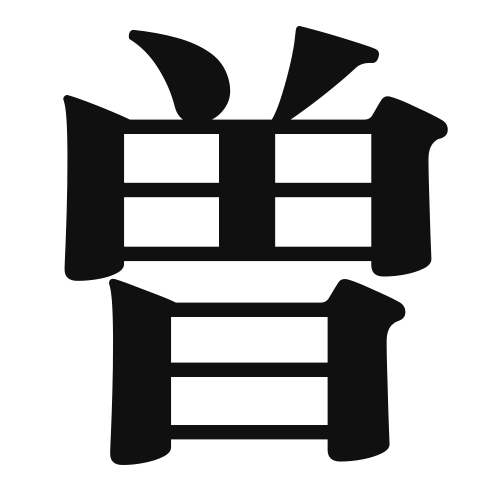1. Overview of Meaning
The kanji “曽” (pronounced “so” or “zeng”) generally means “once” or “previously.” It is often used to indicate something that has happened in the past.
2. Formation and Radical
Formation of the Kanji: The kanji “曽” is a phonetic-ideographic character (形声文字). It combines the radical for “sun” (日) and a phonetic component that suggests its pronunciation.
Radical: The radical of “曽” is 日, which relates to light or day, often associated with time and events.
3. Examples of Usage
Common Words and Phrases: “曽” is often found in words like “曽祖父” (sofu – great-grandfather) and “曽孫” (sōson – great-grandchild).
Example Sentence in Daily Conversation: “彼は曽てこの町に住んでいた。” (He once lived in this town.)
4. Synonyms and Antonyms
Similar Kanji: A similar kanji is “過” (ka), which means “to pass” or “to go through,” but it emphasizes the action of moving through time rather than just indicating a past occurrence.
Antonym: The antonym of “曽” could be “未来” (mirai), meaning “future,” which refers to what is yet to come.
5. Cultural and Historical Background
Relation to Japanese Culture: The kanji “曽” is often used in historical contexts, reflecting on past events or ancestors, which is significant in Japanese culture that values lineage and history.
Proverbs and Idioms: While there are no specific proverbs that prominently feature “曽,” it is often used in discussions about family heritage and history, emphasizing the importance of remembering one’s roots.
